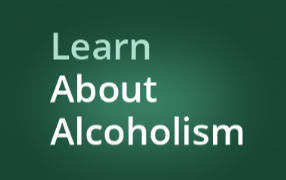12 Step Program of AA
Alcoholics Anonymous, commonly known as AA, is a popular self-help program for alcoholics. Alcoholics Anonymous encourages its members to go through their 12 step program.
The 12 Step Program is a spiritual approach to recovery that involves admitting powerlessness over alcohol, developing faith in God or a Higher Power, helping others through the process and ultimately putting actions into place which help them overcome their drinking addiction.
A common experience is that individuals who go through the 12 Step Program feel as though they are able to move forward with their recovery. For more information about Alcoholics Anonymous, please follow the link.
A 12 step meeting is a place where alcoholics can come together with others who are trying to move forward with their recovery. The meetings typically consist of a group of people who sit around and talk about their struggles with alcoholism, and offer each other support as they try to move past their addictions.
There may also be speakers during some meetings that will share their stories of how things were before AA, and then after finding Alcoholics Anonymous they felt as though they had an opportunity to move toward their sobriety.
Is AA for You?
The truth is Alcoholics Anonymous works well for some people and doesn’t work for others at all. The problem of course with Alcoholics Anonymous is that the majority know nothing about its history or past leaders and how this has shaped the program into what it is today.
If an individual was able to take away all of the bad stigma surrounding AA they would see that it can be helpful in many cases but just like any self help program one size does not fit all!
However, there are still those who advocate against AA and the 12 step program, try not to let this deter you. You owe yourself the opportunity to see what a meeting is like, and if it is a good fit for you.
You may find that you do not like it at all, so don’t feel obligated to return. But if you find that it is a good fit, then there will be somewhere for you to keep coming back.

AA Membership
There are no dues or fees for AA membership; however, contributions are encouraged to help with operating costs.
Alcoholics Anonymous has approximately 2.1 million members (AA World Services, Inc., 2006). In the United States, there are approximately 100,000 AA meetings each week (The New York Times 2003). There is no official head office for Alcoholics Anonymous; however, administration offices are located in New York City and London.
As mentioned above, the 12-step program involves spirituality as a foundation of recovery. Many people believe that there is no place for God or spirituality in addiction treatment programs.
As a result, they avoid these concepts when it comes to their own recovery efforts and end up failing because of that fact alone. Is it an odd concept? Sure, but so is recovery. Is it effective…well as the numbers show the majority of people who go through AA do stay sober and that number keeps going up each year?
Everyone will need to find their own answers in this regard. Just because you feel God may not have anything to do with your sobriety doesn’t mean He/she won’t be a help to others along their journey.
There are those who advocate against AA and the 12-step program, try not to let this deter you. You owe yourself the opportunity to see what a meeting is like and if it is a good fit for you.
It should be noted that the 12-step program of AA is not necessarily the only treatment recommended for alcoholics; it is often recommended in conjunction with other forms of treatment.
A situation like this would be appropriate if the person has failed to improve in other forms of treatment.
About the Steps
The 12 steps of AA begin with admitting you are powerless over alcohol and that your life has become unmanageable. Until you accept the reality of your problem, you cannot begin the process of recovery.
The alcoholics anonymous 12 steps progress through taking a moral inventory of yourself, making a list of people you have harmed by your drinking, and making amends to them.
This can be very difficult to do. The 12 step program of AA is not an easy program to follow or complete.
Here is a more detailed breakdown of the 12 steps.
12 Step Program of AA
Later in the Alcoholics Anonymous program, you are to seek to improve your relationship with God, as you understand Him. The “as you understand Him” part is very important. AA has a strong spiritual component, but it is a non-denominational program.
Finally, the alcoholics anonymous 12 steps program says that you should carry the message to others. This is generally done through participation in the program and is also often done by serving as a sponsor, or mentor, to those newer to the program.
Everyone in the Alcoholics Anonymous program is encouraged to get a sponsor. To get a sponsor, you simply ask someone who has been in the program longer than you have to sponsor you.
Your sponsor should be someone who has completed all 12 steps. The sponsor supports and encourages you as you work the steps.
Members are encouraged to continue attending after they have completed the steps. The ongoing support of the group will help prevent relapse, and the support of more established members is invaluable to newer members of the group.
Members are recognized for the amount of time they have been sober with coins commemorating landmarks such as one month, six months, and one year.

About the Program
The 12 step program of AA is free to alcoholics. Donations are accepted to cover the cost of literature and other costs. Meetings are held in churches and other public buildings that donate space for that purpose.
The alcoholics anonymous 12 steps program is run by alcoholics for alcoholics. It is never run by professionals. It is called Alcoholics Anonymous because group members are supposed to remain anonymous.
They know each other by first name only. They are not supposed to share any information about group members outside of the group.
While Alcoholics Anonymous is not the only self-help group available for alcoholics, it is the best known and most widely available. A number of other self-help groups are based on the 12 steps of AA, such as
- Narcotics Anonymous (for drug addicts),
- Over-eaters Anonymous (for compulsive over-eaters),
- and Gamblers Anonymous (for compulsive gamblers).
There is also a self-help group for family members of alcoholics called Al-Anon.
As mentioned at the beginning of this article, the 12 step program of AA is often recommended in conjunction with other forms of treatment for alcoholism. If you have a drinking problem, you should be assessed by a professional to determine the level of treatment that is right for you.
You may require more intensive treatment than simply a self-help group. While Alcoholics Anonymous can be a great benefit to you, you may require additional treatment as well.

I am a Mental Health Counselor who is licensed in both New York (LMHC) and North Carolina (LCMHC). I have been working in the Mental Health field since 2015. I have worked in a residential setting, an outpatient program and an inpatient addictions program. I began working in Long Island, NY and then in Guelph, Ontario after moving to Canada. I have since settled in North Carolina. I have experience working with various stages of addiction, depression, anxiety, mood disorders, trauma, stages of life concerns and relationship concerns.
I tend to use a person-centered approach which simply means that I meet you where you are and work collaboratively to help you identify and work towards accomplishing goals. I will often pull from CBT when appropriate. I do encourage use of mindfulness and meditation and practice these skills in my own life. I believe in treating everyone with respect, sensitivity and compassion.
I recognize that reaching out for help is hard and commend you for taking the first step. We have professionals available who would be happy to help you move closer to reaching your goals related to your drinking concerns. You may reach these professionals by calling 877-322-2694.
